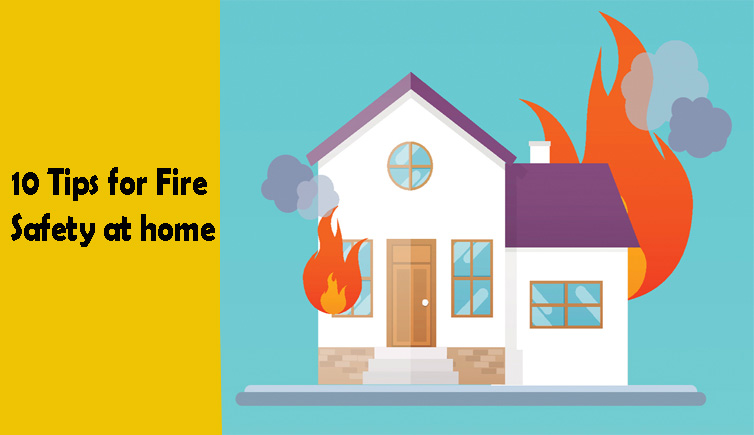Fire safety at home is a paramount concern for every homeowner. While we all hope never to experience a house fire, being prepared and informed is crucial to safeguarding our loved ones and our property. In this article, we’ll provide you with 10 Tips for Fire Safety at home, ensuring you’re well-equipped to prevent and respond to a fire emergency.
The significance of learning fire safety training
Learning fire safety training is of utmost importance for several compelling reasons. Firstly, it equips individuals with the knowledge and skills needed to prevent fires, significantly reducing the risk of property damage and personal harm. Secondly, it fosters a sense of responsibility and preparedness, ensuring that people can respond effectively in emergency situations, potentially saving lives. Thirdly, fire safety training is valuable in workplaces, as it can prevent workplace accidents, protect employees, and minimize business disruptions. Additionally, it promotes a culture of safety and compliance with fire safety regulations, which is critical for legal and insurance purposes. Ultimately, fire safety training is an investment in safety, security, and peace of mind for individuals and organizations alike.
10 Tips for Fire Safety at Home
1. Install Smoke Alarms
Your first line of defense against house fires is your smoke alarm. Make sure you have them installed in every bedroom, outside sleeping areas, and on every level of your home. Regularly test and replace their batteries to ensure they are always in working condition.
2. Create a Fire Escape Plan
Develop a fire escape plan with your family. Ensure everyone knows at least two ways to exit each room and establish a designated meeting point outside. Practice fire drills regularly to familiarize everyone with the escape routes.
3. Invest in Fire Extinguishers
Place fire extinguishers in key locations like the kitchen, garage, and workshop. Learn how to use them correctly and make sure they are in good working order.
4. Kitchen Safety
Most house fires start in the kitchen. To prevent kitchen fires, never leave cooking unattended, keep flammable materials away from stovetops, and have a fire extinguisher within easy reach.
5. Electrical Safety
Faulty wiring and overloaded circuits can lead to fires. Ensure your electrical systems are up to code, avoid overloading outlets, and replace damaged cords or appliances promptly.
6. Maintain Heating Equipment
Regularly service your heating systems, including furnaces, fireplaces, and wood-burning stoves. Keep flammable materials away from heating sources and use screens in front of open flames.
7. Smoking Safety
If you smoke, do so outside and use proper receptacles for cigarette disposal. Never smoke in bed or when drowsy, as it poses a significant fire risk.
8. Store Flammable Materials Safely
Keep flammable materials like gasoline, propane, and chemicals stored in approved containers away from your home. Ideally, store them in a separate, well-ventilated area.
9. Install Fire-Resistant Materials
Consider fire-resistant roofing, siding, and insulation materials for your home. These can provide an extra layer of protection in case of a fire.
10. Educate Your Family
Teach your family about fire safety, especially children. Explain the dangers of fire and how to respond in case of an emergency. Knowledge is a powerful tool in preventing accidents.
Conclusion
Fire safety is a collective responsibility that starts at home. By following these 10 tips, you can significantly reduce the risk of a house fire and ensure the safety of your loved ones and your property. Remember, being prepared and proactive is the key to protecting what matters most. Stay safe, stay informed, and stay vigilant about fire safety in your home.

